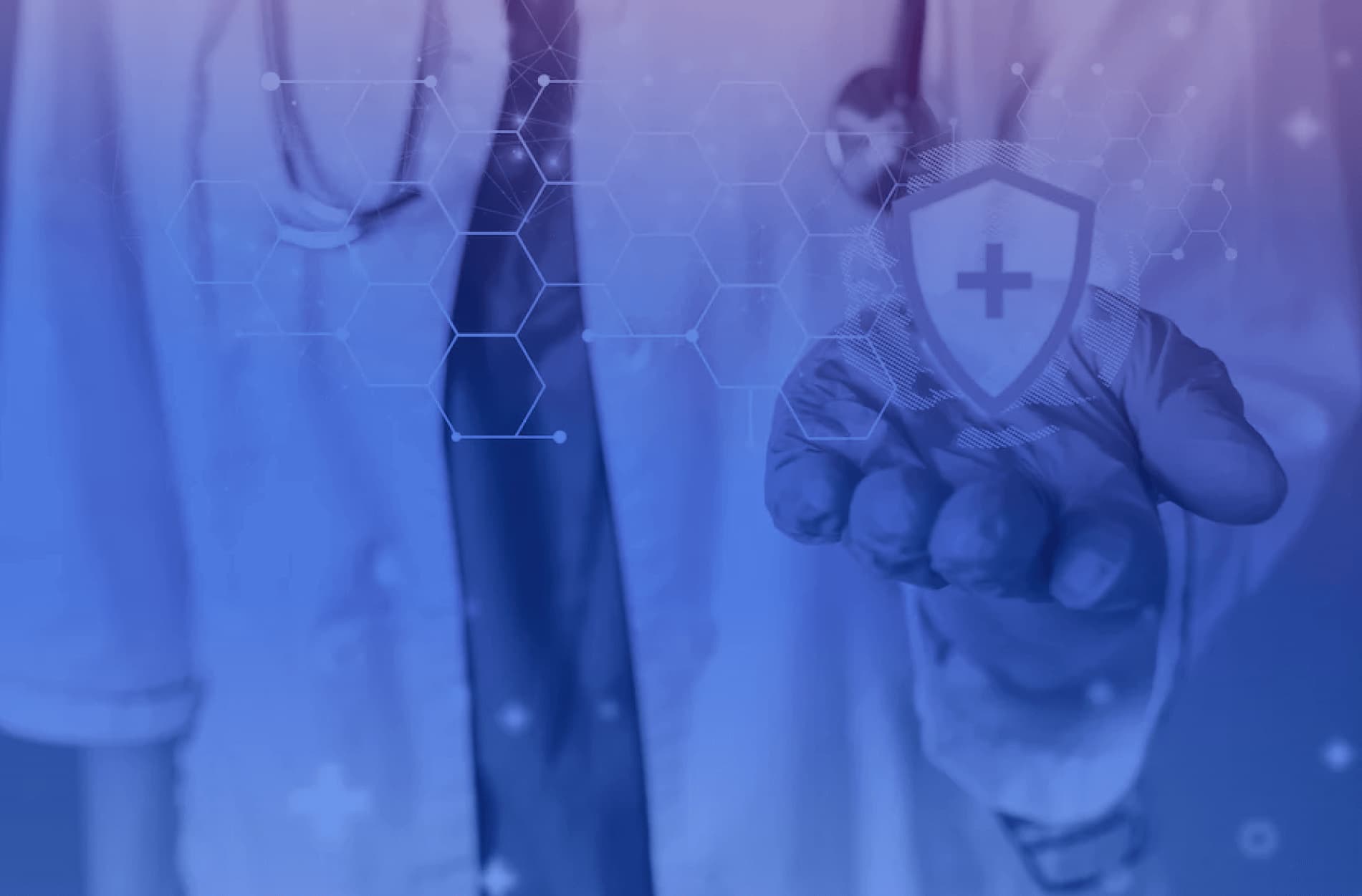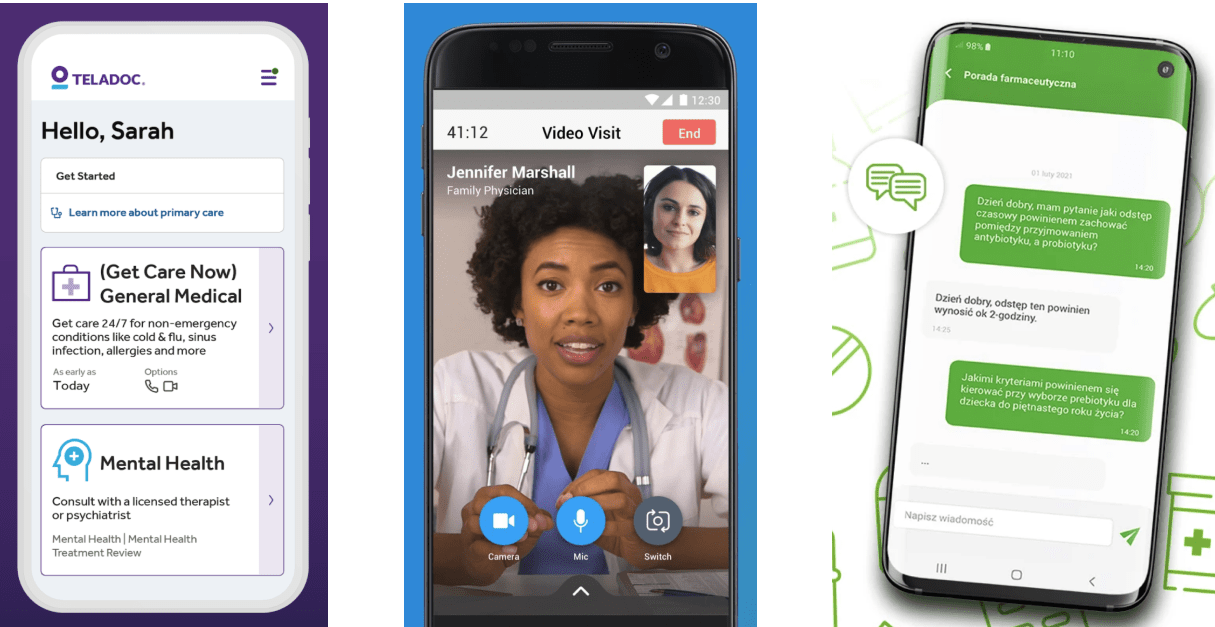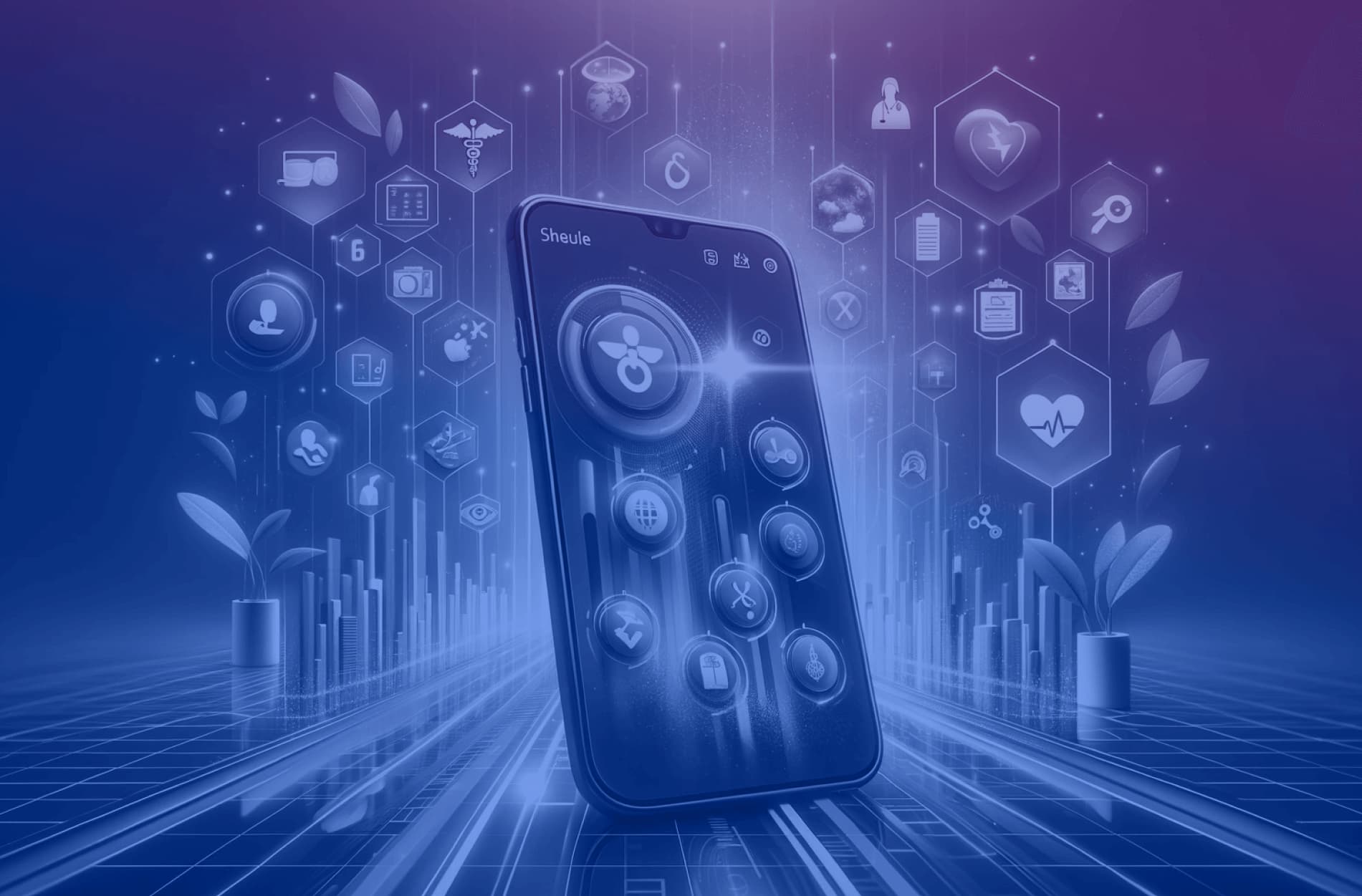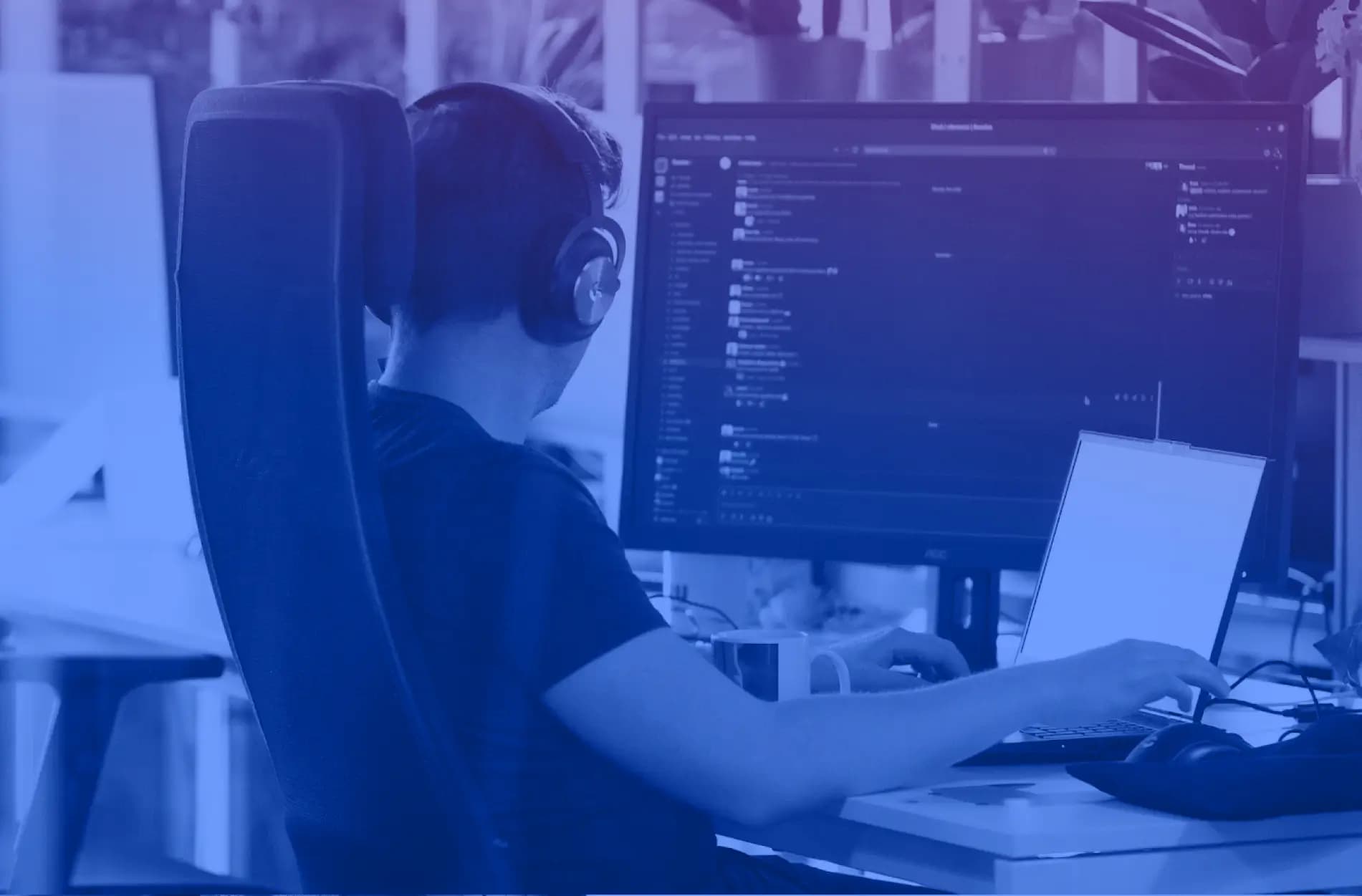
10 kinds of mobile healthcare apps medical specialists use
6 min read
Contents
Among the positive changes resulting from the digitization of almost every aspect of human life in recent years, the exponential growth and adoption of mobile healthcare apps has been one of the most significant. The market for mobile applications used for treatment, preventive healthcare, and medical management is growing at a truly dizzying rate. Which ones and to what extent are the most popular and widely used by doctors and medical staff? Read on to find out.
MedTech = healthcare applications and more
“MedTech” is a pretty broad term, encompassing medical applications (mobile, web, desktop, and embedded software), supporting technologies, and other solutions that help manage the patients’ experience and improve the work of physicians, scientists, and managers of health centers (such as hospitals and clinics). These solutions play an increasingly important role in diagnostics, treatment, and improving life quality – and we’ve already written about some of the key ones in our “Top 5 digital health trends for 2022” article.
MedTech apps cover an extensive range of possibilities and have a wide range of users. And mobile applications in particular are an increasingly common work tool, as evident as the stethoscope from the perspective of physicians, healthcare professionals, and healthcare providers.
The omnipresent mobile healthcare apps
Among the applications classified as MedTech or mHealth, we can find software that serves:
patients;
doctors;
administrators of healthcare facilities;
scientists and research institutions – in this variant,
it’s oriented on collecting and analyzing data that allows broadening medical knowledge;
registration of visits at doctors’ offices (both general practitioners and specialists); issuing e-prescriptions; reminders of appointments, procedures, tests, taking medication;
electronic health records (Electronic Health Record – EHR and Electronic Medical Record – EMR) ‒ dedicated to hospitals and clinics; imaging and visualization;
training, education, and specialization of medical staff – including solutions supported by Augmented Reality (AR) and Virtual Reality (VR) technologies;
creating medical records.
As you can see, mobile healthcare apps cover a vast range of digital products today, serve very diverse purposes, have different functions and roles, and are used by a variety of users. Below are a few types and examples that illustrate the importance of MedTech, in the context of medical specialists, very well.
Telemedicine apps
In the era of the coronavirus pandemic, when restrictions were introduced in many countries, it turned out that applications enabling online contact with patients began to be particularly popular among doctors. Medical consultation apps such as Teladoc, Amwell, DocsApp, or MDlive are easy to use and provide virtually 24/7 assistance from an experienced professional. In addition, they allow doctors to have phone and video consultations that allow for a faster diagnostic process. And if you’ve seen the app we’re working on with Dr.Max pharmacies, you know that online help can also be provided by those who are often closer to the patients – the pharmacists.

Medical Records Applications
Medical records apps are dedicated to both patients and doctors. They bring together crucial medical data in one place, facilitate its transfer between specialists, and provide easy access to the results of examinations or a patient’s medical history regardless of place and time. Examples of such apps are FollowMyHealth and the Medical Records Clinic app. The Smart4Diagnostics app developed by us also fits this category in a way, as it simplifies the sample collection process for medical tests and ensures proper data flow.
Medical Training Applications
Examples of this type of application are Coursera or Lecturio Medical Education, which support medical personnel who want to further their education. The topics covered include epidemiology, public health, patient communication, healthcare quality, healthy lifestyles, global health, anatomy, emergency medicine, histology, OMM, nutrition, pediatrics, pharmacology, or surgery ‒ all the user should do is to choose one of the courses in the app and attend classes regularly. In addition, many specializations are offered free or at excellent prices compared to traditional training.
Chronic disease management applications
Professionals caring for chronically ill patients (diabetes, hypertension, cancer, anxiety, depression, HIV, multiple sclerosis, MS, Crohn’s disease, lymphoma, myeloma, or leukemia) can also count on mobile technology support. One example of such an app is Medisafe, a comprehensive tool that collects all medical and health information in one place: pill and medication reminders, drug interactions, refill alerts, doctor appointments, and a health journal with 20+ tracked health measurements that can be sent directly to the doctor. This makes monitoring the health of chronically ill patients easier and enables them to respond quickly when needed. Another one is Orikami, an app we’ve built for our client to monitor patients with Parkinson’s disease, as well as analyse and better understand their condition.
Mobile anatomy atlases
Beneficial types of apps are also those that make learning anatomy easier. For example, e- Anatomy is a mobile atlas of human anatomy for physicians, radiologists, and medical students, containing more than 8,500 medical and anatomical images for free, without a subscription. The application is based on the award-winning IMAIOS e-Anatomy online atlas. In the full version of the app, users get access to more than 375,000 anatomical structures. The images are divided into three groups: head and neck, abdomen and pelvis, and musculoskeletal system. In addition, there are five image modes: CT, MRI, radiographs, anatomical diagrams, and nuclear medicine images.
Virtual patients in mHealth mobile apps
This is not the end of learning and development opportunities. The InSimu Patient app is the chance to interact with virtual patients. In this way, medical students can diagnose and prepare for clinical work. The main advantage of the simulator is that even the most significant mistake won’t cause any harm. The user can choose the training program according to the specific speciality, as the database contains thousands of diseases. The doctor has a predetermined time to make a diagnosis, depending on the patient’s condition. The application also indicates the cost of treatment.
Mobile drug databases
In the work of physicians, proper selection of medications is extremely important. Knowing the right dosage or possible interactions, contraindications, and pharmacology is also essential. In this matter, doctors can also count on the support of mobile applications. An example is Epocrates. Since 1998, that digital health app has helped more than one million physicians prescribe medications, save time and focus even more on the patient.
Diagnosing difficult medical cases
Dedicated to doctors, nurses, and students, the Figure 1 app is a tool that allows you to discuss complex medical cases with other users, share your knowledge, and help them make a diagnosis. The principle of operation is simple: take a photo with your phone and upload it to your account so that other users can comment on the medical case. In this way, doctors can quickly and easily consult patient cases with specialists from almost all over the world.
Mobile video database for doctors
New technologies also support the work of physicians by providing access to recordings of examinations and procedures. Watching them, they learn and exchange experiences and observations. An example of such an application is Medtube, the world’s largest database of professional medical videos addressed to doctors. It contains thousands of recordings of invasive procedures, surgeries, and lectures. In addition, the platform allows doctors worldwide to share their own experiences in the form of images.
Mobile apps for surgeons
Although it may seem unlikely, there are also applications on the market dedicated to surgeons. For example, Touch Surgery is an operating simulator that allows the practice of 150 procedures from different specialties. The application guides the surgeon step by step through the procedure and the decisions he or she needs to make. 3D graphics in combination with touch screen features add realism to the exercises. In addition, the app analyzes the steps performed, so the doctor can track his or her progress. As a bonus, there are articles addressing current surgical issues.
The benefits of mHealth – why to use health apps?
Some people still aren’t convinced of the benefits of mobile healthcare apps and other MedTech software, but patients’ enthusiasm is growing year by year, and doctors’ skepticism is decreasing as more technologies and applications are followed by legal solutions that introduce norms, standards, and ways to guarantee the safety of patients and processed data (such as the Medical Device Regulation in the EU).
Meanwhile, the most important benefits of using medical apps are:
greater convenience of the treatment process;
a better sense of security and control over the treatment process;
lower costs; more significant involvement of patients in the treatment and recovery process;
easier management, sharing, analysing results and medical records (this is an advantage also for patients who have all the documents in electronic form, much easier to share);
and last but not least – better treatment results.
The boom in MedTech!
To say that the future of medical apps is promising is like saying nothing. No wonder – the coronavirus pandemic has strengthened the mHealth industry and made it even more attractive to investors.
If you also want to create an app for your medical facility, be sure to learn more about the apps we’ve delivered for our clients, and let’s talk!

